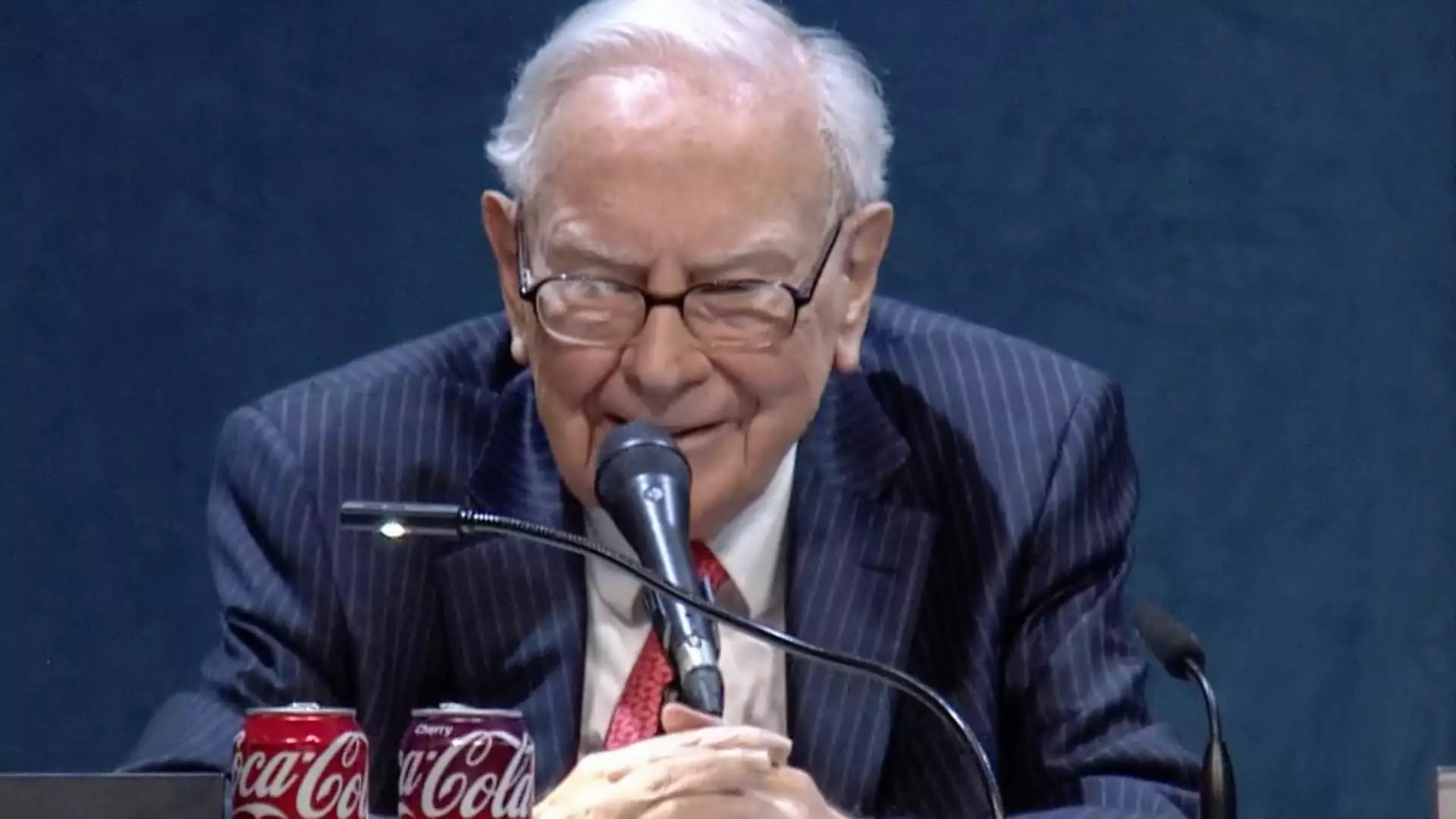Warren Buffett, the Oracle of Omaha, once epitomized the ideal of steady earnings and growth, but recent reports from Berkshire Hathaway reveal a troubling downturn. For the first quarter of 2025, the conglomerate reported operating earnings that plummeted by 14%, dropping to $9.64 billion from a robust $11.22 billion the previous year. This decline raises significant alarms, not only for the company itself but for anyone who sees Berkshire as a proxy for broader economic health. The reality is stark: behind the façade of diversified businesses lies a substantial risk that can no longer be ignored.
The conventional wisdom suggests that Berkshire’s vast portfolio of companies—including giants in the insurance and railroad industries—should insulate it from downturns. However, numbers tell a different story. The company’s per-share earnings fell from $5.20 to $4.47, and its insurance-underwriting profits nosedived by nearly 49%. It’s time we confront the issue head-on: the assumption that size alone guarantees stability is increasingly flawed.
The Tariff Trap: A Compound Crisis
Underlying these earnings figures is the tempestuous atmosphere of geopolitical tension, most notably shaped by President Trump’s tariffs. Berkshire has confirmed that tariffs could further pressure profits in unpredictable ways. While businesses often face risks, uncertainties introduced by international trade policies can lead to a costly quagmire that disallows straightforward forecasting. The conglomerate has called it a “period of uncertainty,” highlighting that investors are inherently risk-averse and less likely to venture into markets when faced with nebulous conditions. It has become painfully clear that these tariffs are not just statistical footnotes; they are existential challenges that could reshape the trajectories of what was once seen as stalwart enterprises.
Geopolitical events have accelerated the effects of market changes, suggesting that tariff-related crises may be just the tip of a much larger iceberg. If the U.S. continues down a path of isolationism, the implications for earnings could be catastrophic, diminishing what were once perceived as safe bets.
ARecord Cash Pile: A Double-Edged Sword
One cannot overlook Berkshire’s staggering cash reserves, which hit a record $347 billion—a substantial cushion under normal circumstances. However, this hoard also serves as a glaring indictment of Buffett’s sometimes-timid investment strategy. With stocks dropping, the classic Berkshire approach of purchasing undervalued assets should have been in full swing. Instead, we find that Buffett was a net seller of stocks for the tenth consecutive quarter. This raises an uncomfortable question: is the stock market truly a shadow of its former self, or is Berkshire’s reluctance to act a signal of deeper systemic risks?
Buffett’s characteristically optimistic lines about dismissing quarterly fluctuations now feel a bit hollow. When the S&P 500 dips while Berkshire’s shares rise modestly—a 19% increase compared to the index’s 3.3% decline—investors may question whether Buffett has the ability to navigate perilous waters effectively.
The Myth of Diversification
Berkshire’s diverse portfolio should theoretically serve as a buffer against market shocks, but this once-sound philosophy appears increasingly outdated. The reality is that no conglomerate is immune to fiscal realities in such an unpredictable market. Buffett himself has cautioned that various elements—be it supply chain woes or changes in consumer demand—can lead to dire consequences when a conglomerate attempts to straddle multiple sectors.
It’s pertinent to ask whether these scattered interests are diluting the strength of their core competencies. As industry standards evolve, relying on the breadth of investment without depth may produce disappointing results over time.
A Shift in Investor Sentiment
Lastly, there’s a growing sense of disillusionment among investors about the very entities that have long been considered bastions of capital. The optimism that has historically surrounded Berkshire is starting to wane, giving way to skepticism. Investors must grapple with the stark contrast between historical performance and current challenges, particularly when stark figures come from a household name like Berkshire Hathaway.
While it might be tempting to dismiss these concerns, especially when viewed through the lens of Buffett’s historical acumen, a windswept optimism lacks substance in a world defined by volatility. The echoes of complacency should serve as a wake-up call for all stakeholders involved. Buffett’s magical touch may not be sufficient to weather the storms brewing on the horizon.


Leave a Reply